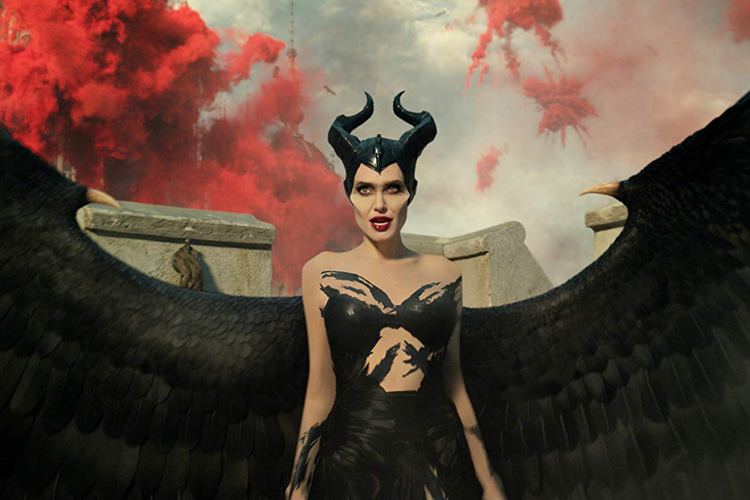Maleficent may have been Disney’s final act of good before completing their turn to the dark side. Sure, they can buy enough studios and filmmakers to randomly generate a good movie every once in a while, but it’s no secret that Walt Disney Pictures’ recent output has reeked of corporate greed—especially since they started remaking their animated classics. But before the live-action Cinderella kicked off that trend in 2015, Disney gave us Maleficent, a surprisingly subtle depiction of sexual assault and the healing of female solidarity. Twisting an old fairy tale in the service of something so thoughtful was a reminder of Disney at its best. But modern Disney can’t let a good thing stand on its own, so this year we’re getting the sequel, Maleficent: Mistress of Evil.
2014’s Maleficent was simple, mature, and straight to the point. In a retelling of the Sleeping Beauty story, the villain became victim: Maleficent cursed the king’s daughter as revenge for the king drugging and violating her; and the true love that awoke the princess came not from a man, but from Maleficent, who understood the suffering of a victimized girl. Mistress of Evil immediately gets off on the wrong foot by re-villainizing Maleficent in the title, but the movie isn’t always that oblivious.
The sequel picks up years later, with princess Aurora and her godmother Maleficent serving as the queen and the protector of the fairies, respectively. After Aurora’s princely boyfriend proposes to her, Aurora must choose whether she’ll continue living with the fairies or move to the neighboring kingdom. But that’s not all: it turns out that Prince Phillip’s mother is a fairy-hating warmonger. But that’s not all either: it also turns out that Maleficent isn’t the last of her species, and her fellow “Dark Feys” want to wage war with the humans. Also there’s a subplot where a hedgehog fairy tries to rescue a mushroom fairy and all sorts of extraneous tomfoolery.
There’s a lot going on in Mistress of Evil, and very little of it has to do with Maleficent. Where the first film reinvented her character to craft a feminist parable, the sequel relegates her to the background, making her just another player in a gritty action movie. It’s like Christopher Nolan executive produced a Sleeping Beauty reboot. And like most Christopher Nolan movies, it could’ve used a better script. In addition to crowding the story, the screenwriters of Mistress of Evil decided to sap Maleficent of her humanity—though she experienced the full spectrum of emotion in the first movie, it’s a running joke in the sequel that she’s cold and emotionless, which prevents us from identifying with her as a woman. A feminist parable this is not.
Where Maleficent dealt with rape subtextually, Mistress of Evil tackles genocide outwardly, as two of the main characters’ motivations are “kill everyone who’s not like me”. The original could handle themes of sexual violation while maintaining a fairy tale tone, though, because it approached assault through allegory: the king cut off Maleficent’s wings while she was asleep. That situation can exist in a fairy tale without making it unsuitable for children. But in Mistress of Evil, characters are literally committing genocide in what’s otherwise a boilerplate Disney fable, which leads to tonal disassociation. The movie wants desperately to be dark and serious, but its allergy to lasting consequences keeps undermining its seriousness with happy endings and cheap reversals. It’s bafflingly bipolar.
With such a minimized and dehumanized role, Angelina Jolie can’t do much to save this mess, but she spices up what little she has. Her glare and her cheekbones are as sharp as ever—it’s just a shame that the movie chose not to narrow its focus on her eponymous character. The wider scope makes a concerted effort to address global issues head-on, but Mistress of Evil lacks the courage to approach these issues in any meaningful way. If the small, subtle original was reminiscent of a Disney long gone, this sequel exemplifies the overblown bombast of Disney today.
★½ (1.5/5)




